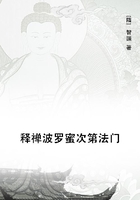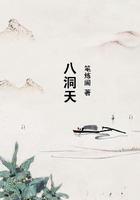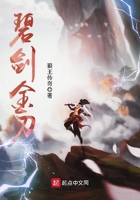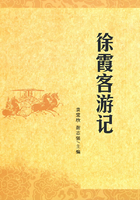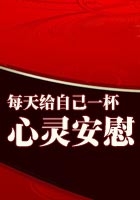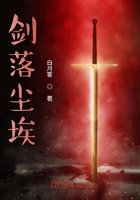Curious premonitions came into his mind. When he heard that the Mahdi was approaching in person, it seemed to be the fulfilment of a destiny, for he had 'always felt we were doomed to come face to face'. What would be the end of it all? 'It is, of course, on the cards,' he noted, 'that Khartoum is taken under the nose of the Expeditionary Force, which will be JUST TOO LATE.' The splendid hawks that swooped about the palace reminded him of a text in the Bible: 'The eye that mocketh at his father and despiseth to obey his mother, the ravens of the valley shall pick it out, and the young eagles shall eat it.' 'I often wonder,' he wrote, 'whether they are destined to pick my eyes, for I fear I was not the best of sons.'
So, sitting late into the night, he filled the empty telegraph forms with the agitations of his spirit, overflowing ever more hurriedly, more furiously, with lines of emphasis, and capitals, and exclamation-marks more and more thickly interspersed, so that the signs of his living passion are still visible to the inquirer of today on those thin sheets of mediocre paper and in the torrent of the ink. But he was a man of elastic temperament; he could not remain forever upon the stretch; he sought, and he found, relaxation in extraneous matters--in metaphysical digressions, or in satirical outbursts, or in the small details of his daily life. It amused him to have the Sudanese soldiers brought in and shown their 'black pug faces' in the palace looking-glasses. He watched with a cynical sympathy the impertinence of a turkey-cock that walked in his courtyard. He made friends with a mouse who, 'judging from her swelled-out appearance', was a lady, and came and ate out of his plate. The cranes that flew over Khartoum in their thousands, and with their curious cry, put him in mind of the poems of Schiller, which few ever read, but which he admired highly, though he only knew them in Bulwer's translation. He wrote little disquisitions on Plutarch and purgatory, on the fear of death and on the sixteenth chapter of the Koran. Then the turkey-cock, strutting with 'every feather on end, and all the colours of the rainbow on his neck', attracted him once more, and he filled several pages with his opinions upon the immortality of animals, drifting on to a discussion of man's position in the universe, and the infinite knowledge of God. It was all clear to him. And yet--'what a contradiction, is life! I hate Her Majesty's Government for their leaving the Sudan after having caused all its troubles, yet I believe our Lord rules heaven and earth, so I ought to hate Him, which I (sincerely) do not.'
One painful thought obsessed him. He believed that the two Egyptian officers, who had been put to death after the defeat in March, had been unjustly executed. He had given way to 'outside influences'; the two Pashas had been 'judicially murdered'. Again and again he referred to the incident with a haunting remorse.
"The Times", perhaps, would consider that he had been justified; but what did that matter? 'If The Times saw this in print, it would say, "Why, then, did you act as you did?" to which I fear I have no answer.' He determined to make what reparation he could, and to send the families of the unfortunate Pashas ā1,000 each.
On a similar, but a less serious, occasion, he put the same principle into action. He boxed the ears of a careless telegraph clerk--'and then, as my conscience pricked me, I gave him $5. He said he did not mind if I killed him-- I was his father (a chocolate-coloured youth of twenty).' His temper, indeed, was growing more and more uncertain, as he himself was well aware. He observed with horror that men trembled when they came into his presence--that their hands shook so that they could not hold a match to a cigarette.
He trusted no one. Looking into the faces of those who surrounded him, he saw only the ill-dissimulated signs of treachery and dislike. Of the 40,000 inhabitants of Khartoum he calculated that two-thirds were willing--were perhaps anxious--to become the subjects of the Mahdi. 'These people are not worth any great sacrifice,' he bitterly observed. The Egyptian officials were utterly incompetent; the soldiers were cowards. All his admiration was reserved for his enemies. The meanest of the Mahdi's followers was, he realised, 'a determined warrior, who could undergo thirst and privation, who no more cared for pain or death than if he were stone'. Those were the men whom, if the choice had lain with him, he would have wished to command. And yet, strangely enough, he persistently underrated the strength of the forces against him. A handful of Englishmen-- a handful of Turks would, he believed, be enough to defeat the Mahdi's hosts and destroy his dominion. He knew very little Arabic, and he depended for his information upon a few ignorant English-speaking subordinates. The Mahdi himself he viewed with ambiguous feelings. He jibed at him as a vulgar impostor; but it is easy to perceive, under his scornful jocularities, the traces of an uneasy respect.
He spent long hours upon the palace roof, gazing northwards; but the veil of mystery and silence was unbroken. In spite of the efforts of Major Kitchener, the officer in command of the Egyptian Intelligence Service, hardly any messengers ever reached Khartoum; and when they did, the information they brought was tormentingly scanty. Major Kitchener did not escape the attentions of Gordon's pen. When news came at last, it was terrible: Colonel Stewart and his companions had been killed. The Abbas, after having passed uninjured through the part of the river commanded by the Mahdi's troops, had struck upon a rock; Colonel Stewart had disembarked in safety; and, while he was waiting for camels to convey the detachment across the desert into Egypt, had accepted the hospitality of a local Sheikh.
Hardly had the Europeans entered the Sheikh's hut when they were set upon and murdered; their native followers shared their fate.

